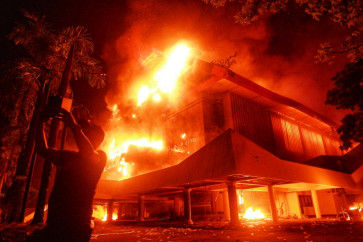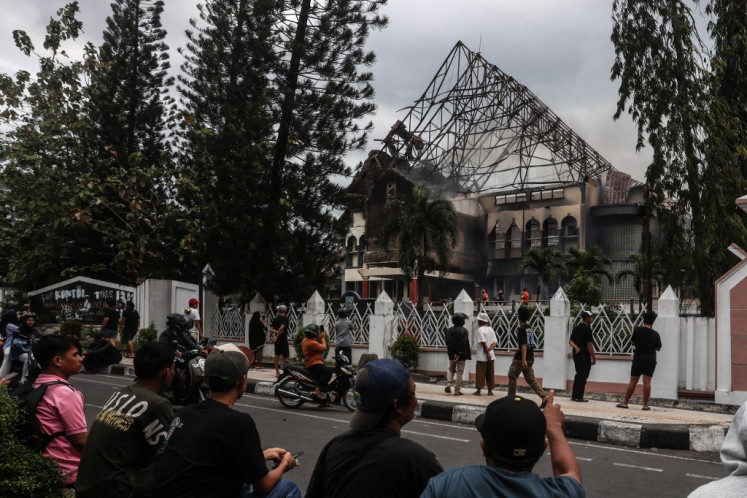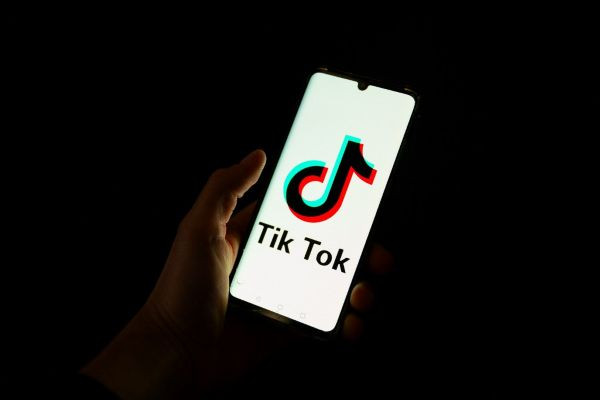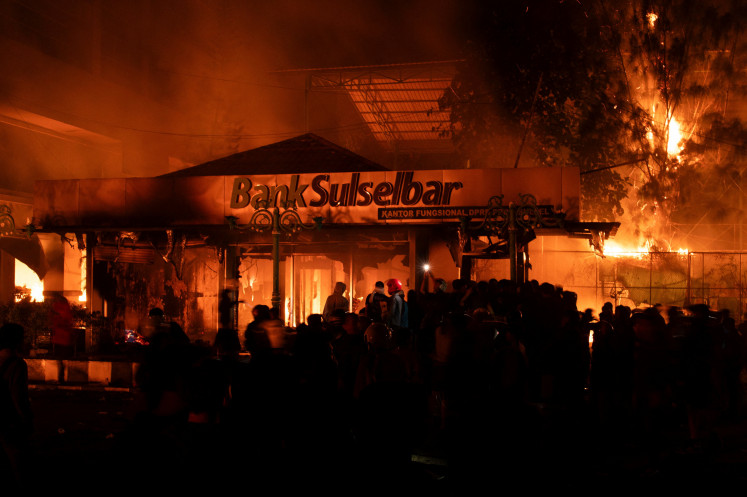Popular Reads
Top Results
Can't find what you're looking for?
View all search resultsPopular Reads
Top Results
Can't find what you're looking for?
View all search resultsStick to the guidelines or face libel prosecution
The Legal Aid Institute for the Press (LBH Pers) said on Thursday that the mass media should use the guidelines set out to in the prevailing journalistic code of ethics to avoid libel claims being drawn into criminal cases and court proceedings
Change text size
Gift Premium Articles
to Anyone
T
he Legal Aid Institute for the Press (LBH Pers) said on Thursday that the mass media should use the guidelines set out to in the prevailing journalistic code of ethics to avoid libel claims being drawn into criminal cases and court proceedings.
According to LBH Pers executive director Nawawi Bahrudin, many journalists are currently being investigated by the police in defamation cases, despite Press Law No. 40/1999, which requires that any libel case related to the mass media should be settled through the Indonesian Press Council.
'We can see that many people or groups are still reporting media workers to the police,' Nawawi said during a discussion at The Jakarta Post editorial office in Jakarta on Thursday.
In March this year, Tempo magazine was reported to the Police Criminal Investigation Agency (Bareskrim) by the Indonesian General Society Movement (GMBI) for publishing a story on the suspicious bank accounts of former police-chief candidate Comr. Gen. Budi Gunawan.
The GMBI alleged that the magazine had divulged state secrets and violated both the 1999 Banking Law and the 2010 Money Laundering Law by revealing details of private bank account transactions allegedly made in Budi's name.
Another defamation case in which lawyer Romli Atmasasmita reported two anti-graft activists from the Indonesian Corruption Watch (ICW), Emerson Yuntho and Adnan Topan Husodo, in May for allegedly slandering him in comments they made to journalists who then published articles in Kompas, Tempo and The Jakarta Post. Reporters from all three publications were called in by the police as witnesses in the case in June.
According to Nawawi those cases should be settled through the Press Council rather than the police.
'The Press Council already has a mechanism for settling such cases,' he said.
He also pointed out that defamation cases involving mass media are a matter of civil law, rather than criminal law.
'And, even as an issue of civil law, courts should not be excessively punitive in the leveling of fines that could trigger bankruptcy,' he added.
Indonesian Press Council member Abdullah Alamudi said that besides the defamation law, the current Information and Electronic Transaction (ITE) Law could also be used as a tool to criminalize the mass media.
Article No. 27 paragraph 3 of the ITE Law stipulates that any and all persons who intentionally distribute or transmit any document or electronic information containing insults or libel could face a maximum of six years in prison.
'This could threaten freedom of expression, as it could be used by many people, especially state officials, to criminalize the mass media,' Abdullah said.
Meanwhile, Romy Febri of the Alliance of Independent Journalists (AJI) said that the mass media should pay more attention to the journalistic code of ethics in reporting news.
'Many of reporters are not fully aware of the content of the code of ethics,' Romy said.
'We could avoid being criminalized if we really considered the ethical guidelines in the code when we write the news,' he added. (ind)










